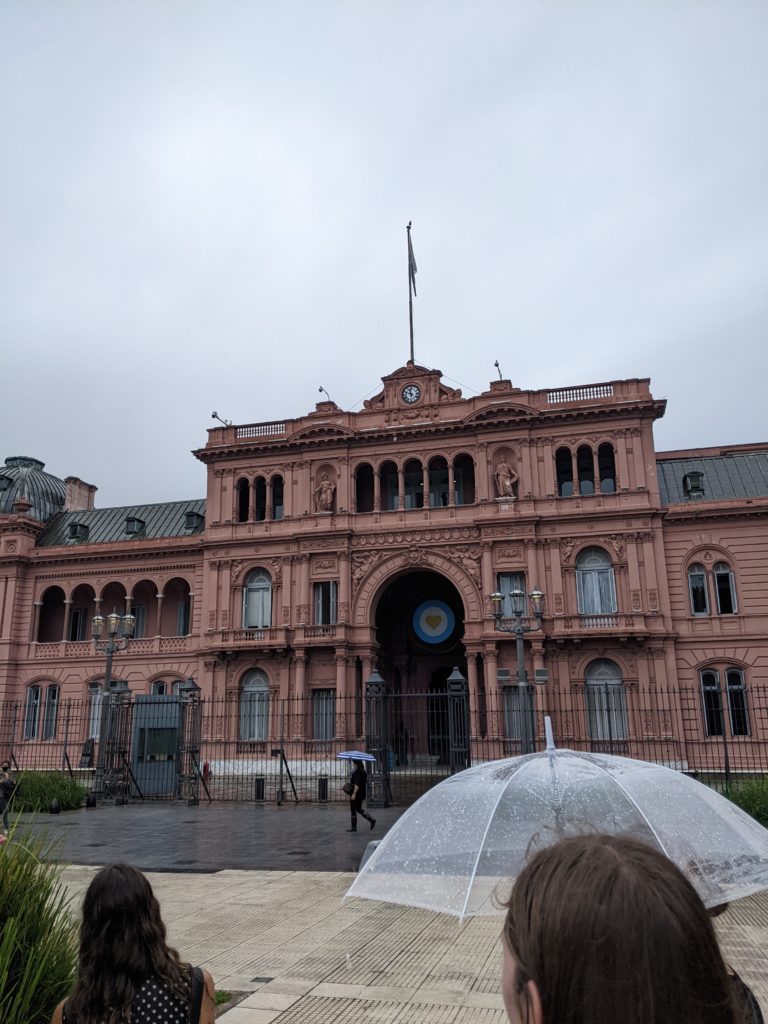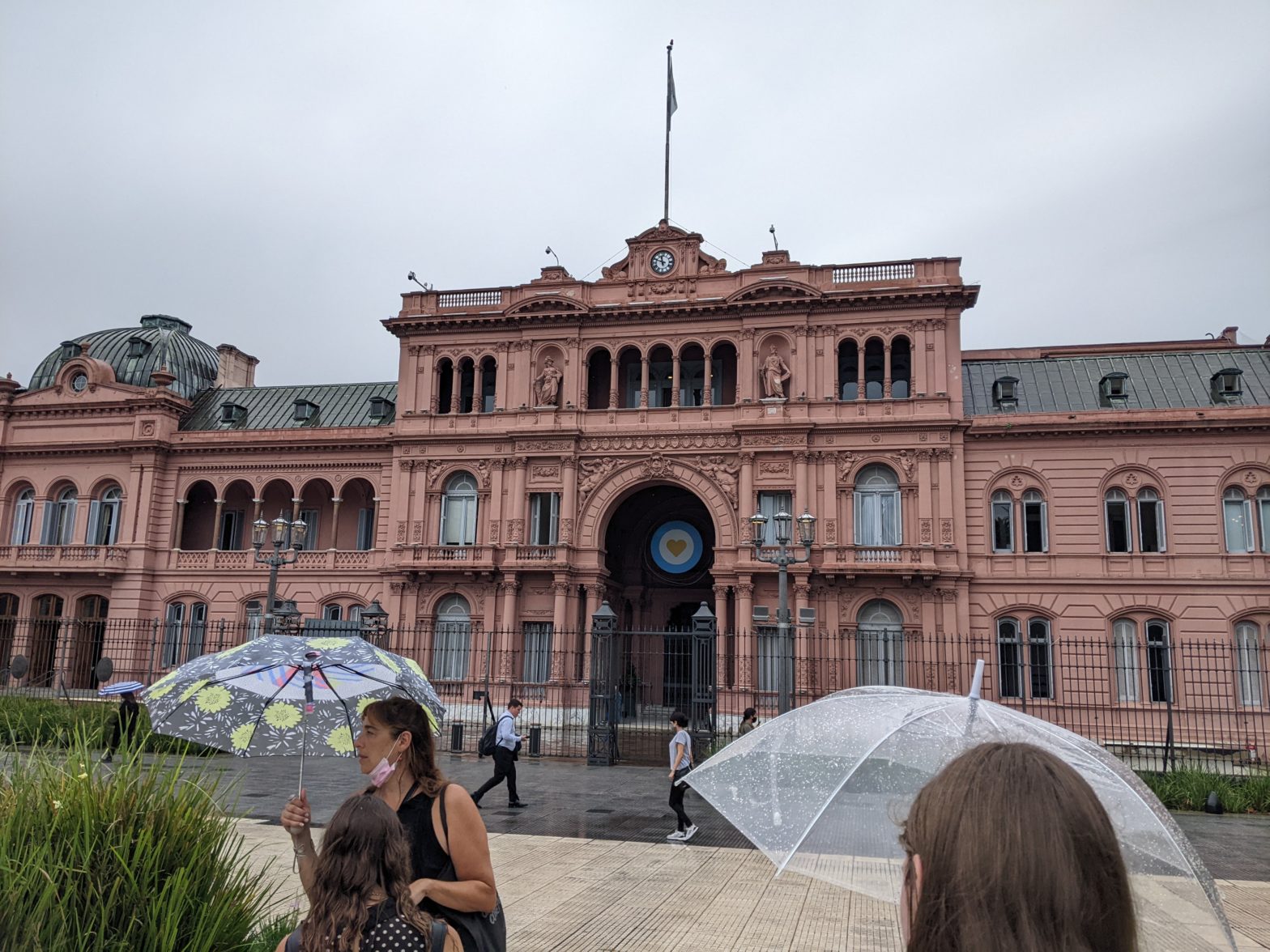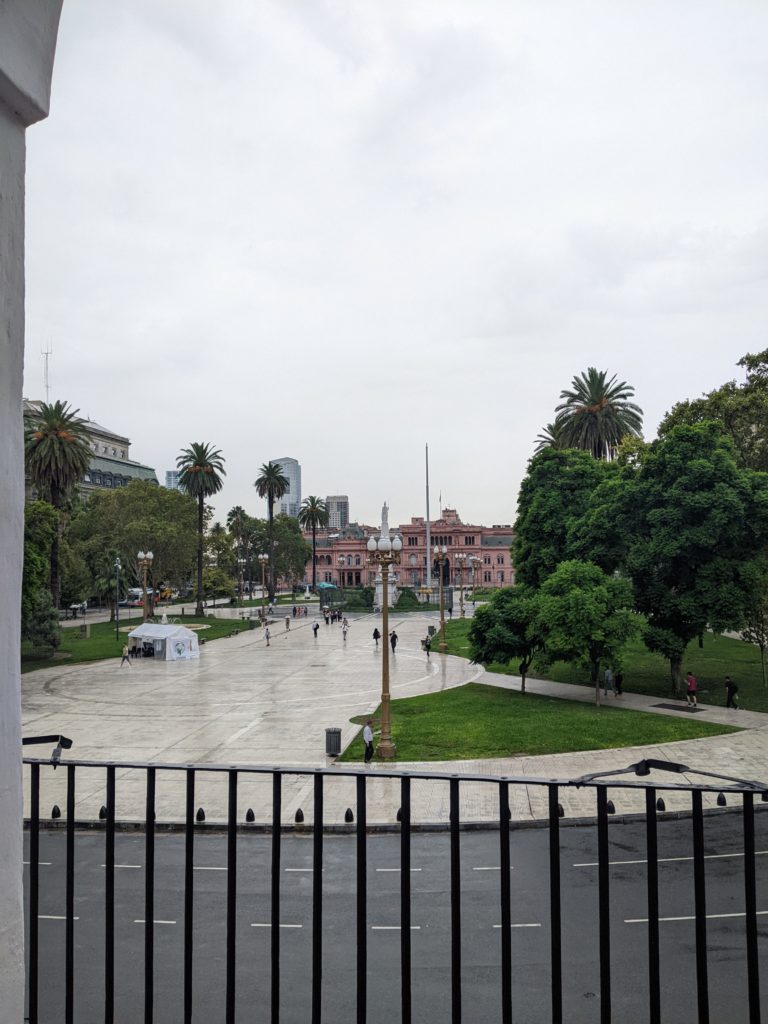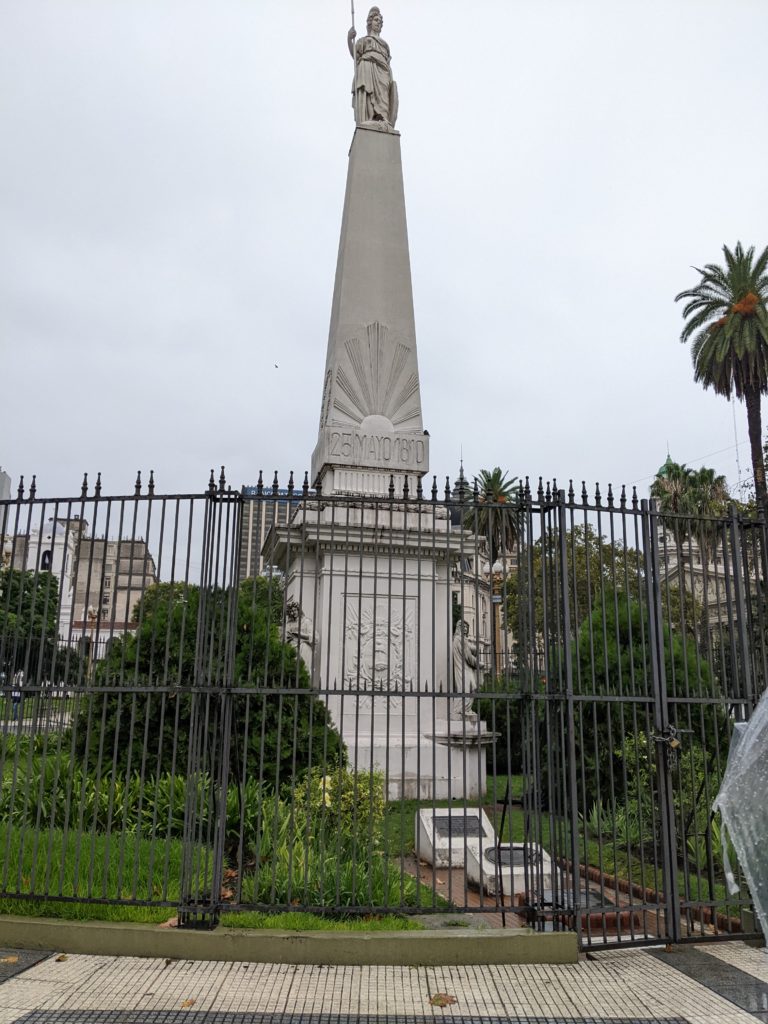Spanish Word of the Day: desaparecido
Translation: missing
La Plaza de Mayo is one of the most important places in Buenos Aires. Bold claim, I know. It’s not necessarily because of any particular thing that the Plaza has. It’s because of how it’s used in this day and age.
…
Protests are very common in Buenos Aires. They happen, if not every day, every few days. There are so many people trying to fight for what they believe in, and to do so, they’ll take up streets, beating on drums and shouting into megaphones.
One of the most common places where people protest is in La Plaza de Mayo, in front of la Casa Rosada, where the President works. I learned about the plaza last year in one of my classes when I did a presentation on las madres y abuelas (mothers and grandmothers) de la plaza.
…
About 50 years ago, Argentina was under a military dictatorship. It was very strict and violent. If anyone spoke out about it, they would become a “desaparecido”. Many of these people were held captive, tortured, or murdered, with their bodies dropped into the sea out of a plane. It was also very common for babies of captives to be given away to richer couples. A very illegal method of adoption. And, many weren’t aware where these children were coming from. Around 30,000 children went missing due to this. I know, heavy stuff. The mothers and grandmothers of these missing children are still protesting today, which brings us to La Plaza de Mayo.

La Casa Rosada, where the President works
Every month, Las Madres y Abuelas de la Plaza de Mayo dedicate a day to protesting the missing children and grandchildren. Even though the dictatorship ended about 40 years ago, less than 600 have been found. This is a huge example of how history affects the present and future. Keep the history in mind next time you travel somewhere new.




